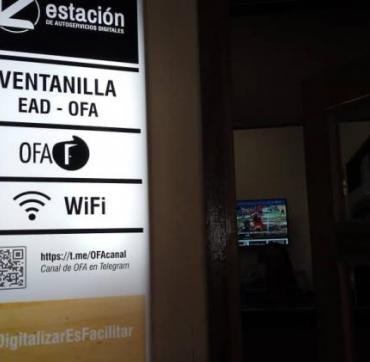Echoes of Jazz Plaza: Michael League and the Music That Brings Us Together
especiales

He is still a young musician, yet he has traveled a long road. Born in California, United States, he has attentively observed and listened to the world, which has allowed him the privilege of making great music and many friends, including the one he has with Cuban musician Pedrito Martínez and Mexican artist Antonio Sánchez, who accompanied him during the Jazz Plaza Festival in Havana.
“We met in New York. I lived there for 11 years, Antonio for 20, and Pedrito still lives in New Jersey. I boasted friendship with both of them separately, and at some point, I was discussing different projects with each of them. With Pedro, we had the idea of creating a Yoruba music group with different elements, and with Antonio, I was talking about forming another group —mostly as an excuse to play together. Then I connected the two ideas and thought: we could form something together, the three of us. And that’s how it started. It was not about business or the music industry; we were just friends who wanted to play together, and each of us had something unique to bring to the table.”
Thus, Elipsis was born, a band that, according to Michael League himself, was founded “around Afro-Cuban music, with the concept of modernizing tradition in some way. Our work as a trio is to take those roots to other sonic spaces. For us, having studied folkloric music, there are places in the world that are truly special to perform in. Playing in a place where the roots of a specific style originate is a unique experience. What we are doing is somewhat adventurous, and I am very excited to see the interaction with the Cuban audience.”
For Michael League, this island is a point of reference: “Personally, whenever I am invited to teach here, I come running because, musically, Cuba is one of the most interesting, rich, and diverse countries in the world. Even the greatest musicians —far greater than me— come here and immediately become students upon arrival. The musical culture in Cuba is incredibly powerful.”
During his performances in Havana —the third city, after Barcelona and Madrid, to enjoy Elipsis live— his words from the press conference were confirmed:
“Playing jazz with friends is like having a conversation. It is very natural. Of course, you spend your entire life studying, practicing, and playing, and then, when the time comes, it flows effortlessly. If you have the technique and the musical vocabulary, when you start playing, everything happens naturally: you comment, the other responds, and a musical conversation unfolds.”
And this camaraderie in creating music is not a recent discovery for him. Michael has been working among friends for decades:
“When I was at the university, I formed a group —also with friends— which I called Snarky Puppy. The plan was to perform a few concerts for our university friends, but now, 20 years later, the band is still going strong. Through this group, I have had the opportunity to explore various types of music. Nowadays, my career is primarily focused on production —I travel the world producing albums for musicians from many different countries.”
In fact, about eight years ago, he worked in Cuba on a record with maestro Eliades Ochoa. More recently, he was in Matanzas, bringing to life a remarkable idea involving rumba:
“Two years ago, I went to Matanzas to bring Los Muñequitos together with Afrocuba, and we are finishing that album right now, this very month. I believe that even the most experimental things we do in music have very deep roots in specific traditions. Everything has origins, and I think we tend to separate genres in a way that isn’t entirely true. We say that electronic music is very new and that Cuban rumba is very old and traditional —but that is not the reality. The rhythms used by electronic music producers and DJs also come from somewhere, from a specific group of people.
So, for me, working as a producer with rumberos from Matanzas is the same as working with other world music genres. What matters most to me is having respect for the roots and traditions while also communicating the depth of that tradition to a broader audience.”
“I have listened to thousands of rumba records. I have been a huge fan of rumba for decades. I think Afro-Cuban music has influenced the entire world. It has spread like seeds that are now blooming in many different countries. That is why I take this responsibility very seriously. I have great respect for the tradition, even though, in the end, my job is to create something visceral—to try to convey the essence of this music to an audience that may not be very familiar with Cuban rumba.”
Michael credits his older brother with introducing him to Cuban music for the first time. However, he also recalls:
“At the university, when we played jazz concerts, we sometimes performed songs by Irakere, and I remember thinking: ‘What is Irakere?’ I was 18 years old, so I did some research, and that opened a door to an entirely new world for me.
In the end, we are all neighbors —Latin music, American music, Caribbean music. We are all connected, and our traditions are deeply rich and intertwined if we keep an open mind.”
“And what does the Cuban Revolution teach? That revolution is possible, that people can make it happen.”
Translated by Sergio A. Paneque Díaz / CubaSí Translation Staff














Add new comment